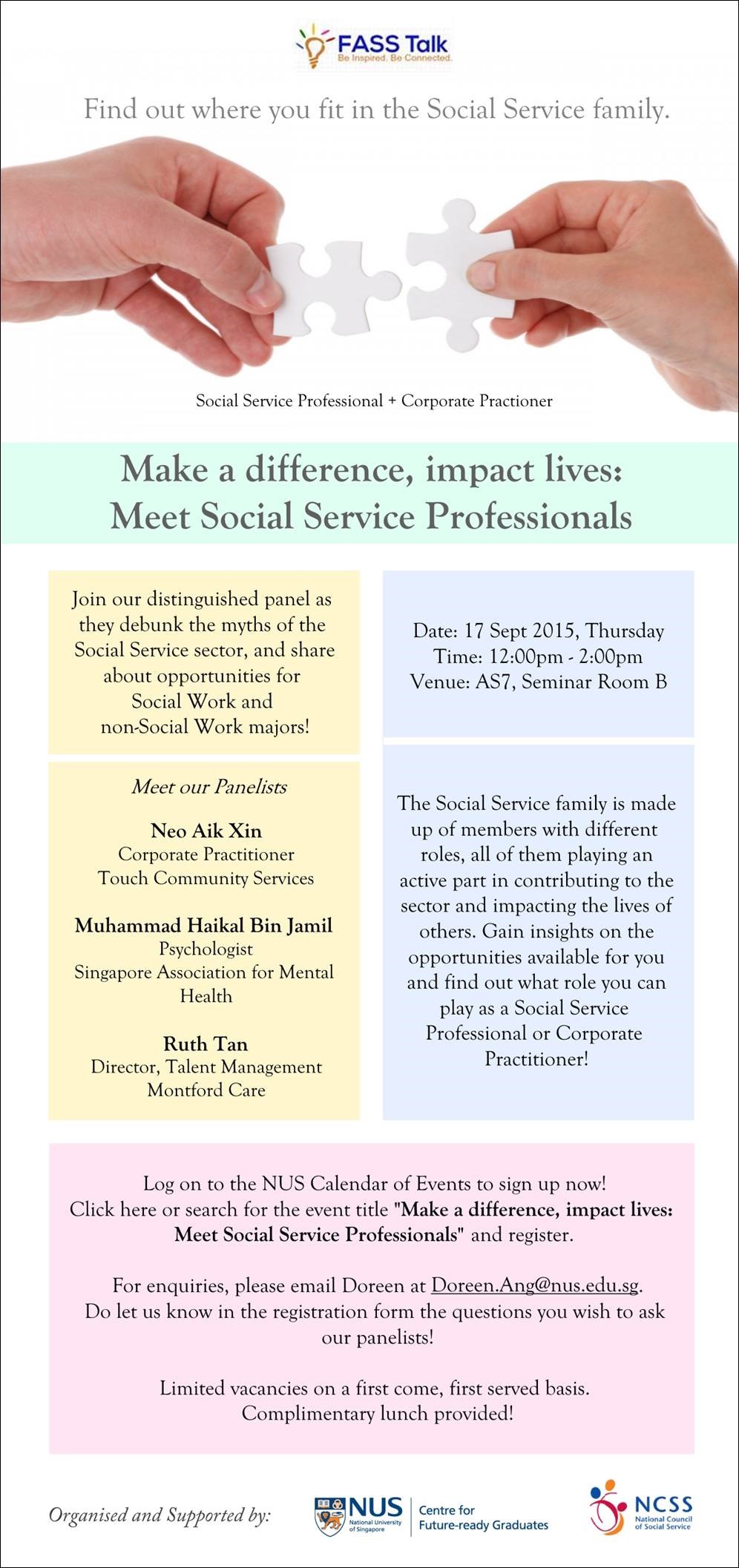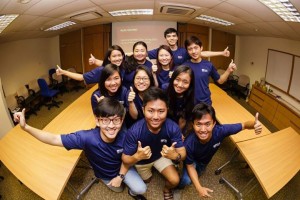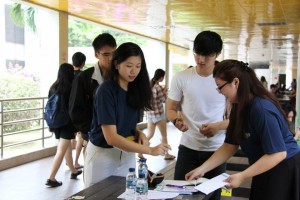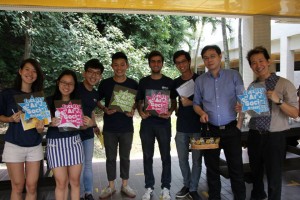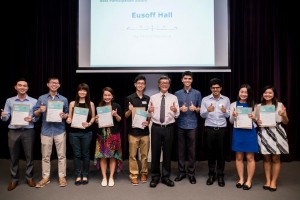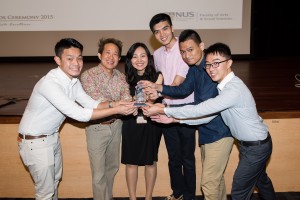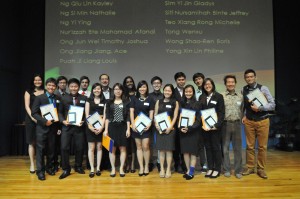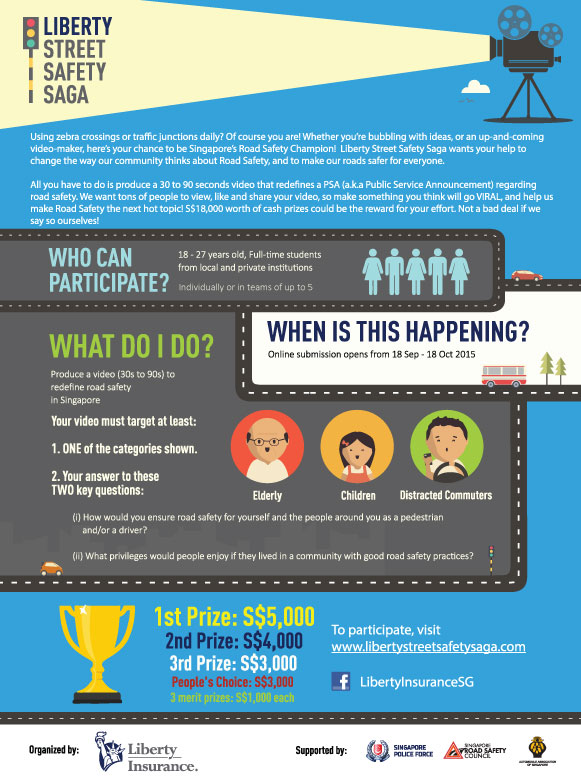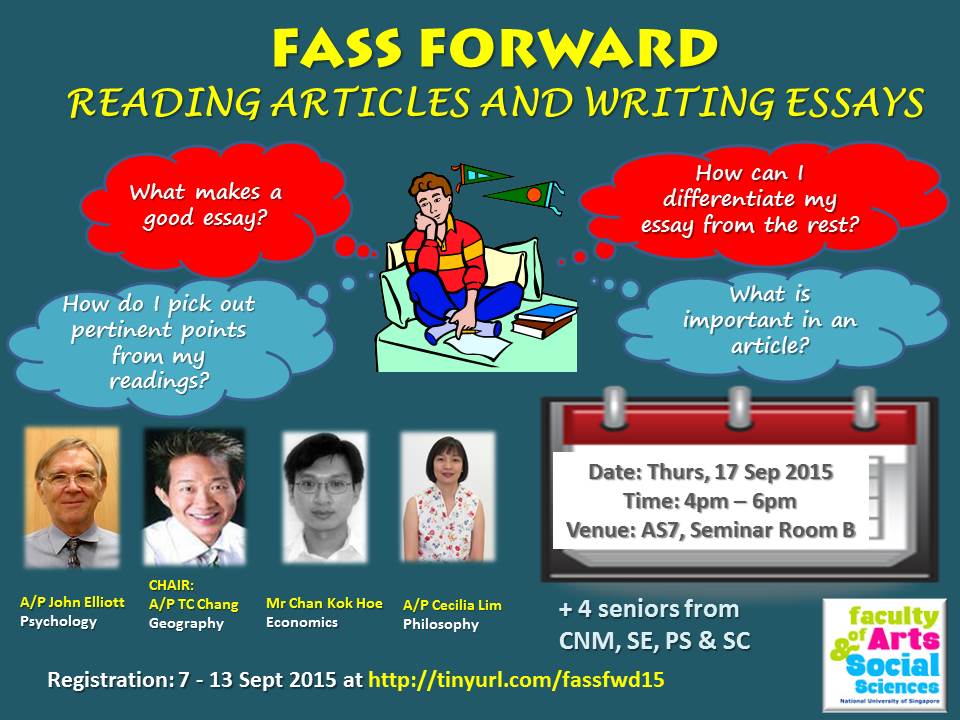
Shobha Vadrevu, from the Department of Communications and New Media, was awarded the Graduate Student Teaching Assistant Honour Roll at the FASS Awards Ceremony 2015.
For the former secondary school educator, the receipt of the award is a testament of the hard work and dedication of all teachers as well as the guidance that she has received from her module coordinators.
She shares with us her reasons for pursuing a graduate education with the Department of Communications and New Media, her experience as a teaching assistant and the biggest takeaway from her teaching experience.
Why did you choose Communications and New Media?
I started out as a secondary school teacher intensely interested in how new media technologies and platforms seemed to be shifting the nature of the relationship between teachers and students. This led me to write my masters dissertation on how teachers manage their interactions with students on Facebook, navigating multiple issues such as blurred public/private boundaries, and professional/personal identities. While this was in the field of educational research, my search for relevant literature for this dissertation led me to the work of Associate Professor Lim Sun Sun, to whom I wrote an email out of the blue, including my CV, a writing sample and my research interests, just so she knew I was serious about exploring the possibility of working with her. With what I have come to realise is her characteristic and unique mix of curiosity and generosity, she wrote back and agreed to meet me. With her input, as well as further input by other faculty members at the department, my desire to get a handle on the politics of new media (insofar as I understood it from what I observed about its impact on hierarchies in school as well as in wider society) led to a thesis that explored the scope for agency in the technological society based on an empirical investigation of the configuration of the media literacy curriculum in Singapore’s educational and technological policy. Communications and New Media turned out to be exactly the right place for me to explore ways in which I could contribute to growing understandings of the complex role of digital technologies in shaping citizenship.
How did FASS and NUS contribute to your journey thus far?
The research scholarship that NUS awarded me was the key factor enabling my development as a scholar. Applying for a PhD at the age of 40, I worried about whether any institution would support my dreams of an academic career, given the focus often placed on investing in youth rather than life experience. The research scholarship gave me – a mother of two who had stayed at home for ten years to raise her children – the opportunity to break free of the constraints of culturally imposed gender norms and move towards a goal of financial independence and intellectual growth. The award of the President’s Graduate Fellowship one year into my candidature provided significant affirmation for my academic trajectory. Through the facilitation of these developments, the provision of opportunities to engage with students and teachers across the faculty, the nurturing of a vibrant research environment, and the avenues for contribution to the community at every level, FASS has provided a very supportive context for the realisation of my goals. Significantly for me, stepping into FASS meant access to experienced scholars and an abundantly stocked library.
How do you feel about the award that you have achieved?
The award is yet another form of affirmation, this time of skills and experience that I brought to NUS with me. As a trained teacher with experience in the secondary school classroom, I had a chance to develop my philosophy and style as a teacher before I began teaching at NUS, and have always been reflexively engaged with the project of my own development in this regard. While the higher education classroom is of course a very different space, the pedagogical relationship is one that is fundamentally contiguous across contexts. In the four years that I served as a graduate student teaching assistant, I never thought of myself as “just” a teaching assistant. Rather, I viewed the position as a way of informing my perspective about teaching at the university level, and as a bridge to eventually designing and implementing my own undergraduate and graduate modules. The award, based as it is on a combination of student feedback and administrative oversight, represents for me a very democratic and credible way of affirming teachers for the work that they do. It also encodes the support and validation of module coordinators who guided me, engaged with my feedback, and wrote in to nominate me for the award.
What are some of the observations you have made while teaching?
The undergraduates I have had the pleasure of teaching have been eager to learn and engage, and very responsive when they perceive that they are in a safe learning space. The fact that I was also grappling with the vulnerability of being a learner in my doctoral studies enabled me to empathise and led me to attempt to co-construct such a safe space with the students. I’ve also learned that students appreciate having access to their tutors for individual consultations should the need arise.
Describe a memorable moment in your teaching experience.
One particularly memorable moment was when I was faced with a mountain of lengthy individual project reports to grade. At that moment my decision to leave secondary school partly because of the heavy grading load, only to be once again plunged into a similar situation, seemed a little like leaping straight out of the frying pan into the fire, and I admit to having indulged in a few tears of despair. However, reading the reports actually had a calming effect on me once I’d gathered the courage to get started, because of how interesting they were. It also helped that the module coordinator had worked out with the tutors ahead of time a systematic rubric for grading that made the process much less painful. That initial reaction, however, is one I will never forget. One major lesson I learned from it was to be more proactive in discussing my targets with module coordinators.
What is the biggest takeaway out of these teaching experiences?
My biggest takeaway out of these experiences is that teaching well is a communicative art – one that depends on a delicate balance of knowledge, institutional power, interpersonal relations, and emotional investment. Being a graduate tutor puts you in the unique position of being both “inside” as well as “outside”. You are both student as well as teacher. This seems to me a much more complex situation than it is often made out to be, and I believe that it is potentially a very productive one for exploring the scope for agency within an institution of higher education. I am grateful to have had the opportunity to experience this dynamic, which I think has been a central part of my postgraduate journey.
What are your future plans with regards to your academic development?
Having just submitted my doctoral dissertation for examination I am now awaiting the examiners’ feedback. I see the PhD as the beginning of my intellectual journey, rather than the closing of a chapter. My future plans involve seeking a position with an academic institution that supports my goals for further research. I am fortunate that my years as a graduate student at FASS have allowed me to develop relationships with mentors who continue to provide guidance as I plan the next stage of my academic career.
